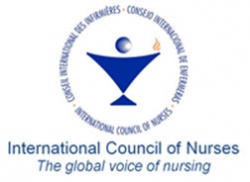Zika virus
Nurses are first point of care for education and community resilience
As the largest group of health professionals in the world, and the first point of care for many, nurses are key to educating patients on prevention and risk of the Zika virus and providing care to those who need treatment.

The International Council of Nurses (ICN) recommends nurses in infected countries to advise patients to protect themselves against mosquito bites through the use of insect repellants, bed nets, window and door screens, and covering exposed areas of skin. In addition, any containers, such as flower pots, buckets, etc. that many contain water where mosquitoes can breed, should be removed. In non-affected countries, ICN advises nurses to ask whether their pregnant patients have recently travelled to infected countries and to advise them against travel to those areas.
“With nurses providing the majority of primary health care in most countries, it is important they are aware of the risks of the virus, the ways to prevent its spread, and when testing and treatment are needed,” said Dr Frances Hughes, ICN’s Chief Executive Officer. “While the Zika virus disease is usually relatively mild and requires no specific treatment, this recent outbreak and the risk it poses to pregnant women have caused widespread concern.”
Dr Hughes added, “To reduce fear and anxiety, it is important for communities to have access to up-to-date and accurate information and nurses are the key vehicle of delivery of this information. Nurses are also well placed to educate and offer psychosocial support to reassure the public and build community resilience, as well as ensure early detection and intervention.”
In May 2015, the first infections of Zika virus were confirmed in Brazil. Since then, the virus has spread to over 13 countries in the Americas, and in Cape Verde, Africa. Cases have now been confirmed in the USA and Europe. While the virus is transmitted to people primarily through the bite of an infected Aedes species, it can also be spread through blood transfusion and sexual contact. Unfortunately, there are many cases in Brazil and other countries in South America, in which a pregnant mother has passed the virus on to her unborn child. The news channel, Al Jazeera[3], reported that the Brazilian Minister of health has announced that there are over 4,000 suspected and 400 confirmed cases of microcephaly among newborn babies with many strongly suspected of being caused by the Zika virus.
Source: International Council of Nurses
11.02.2016











